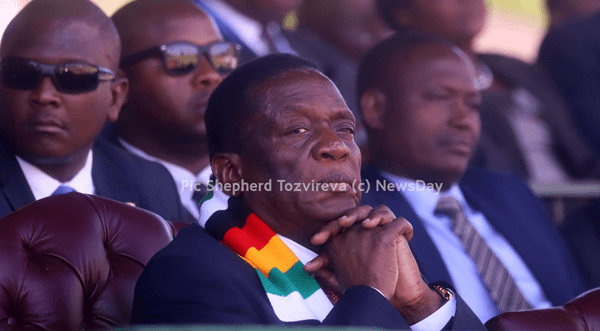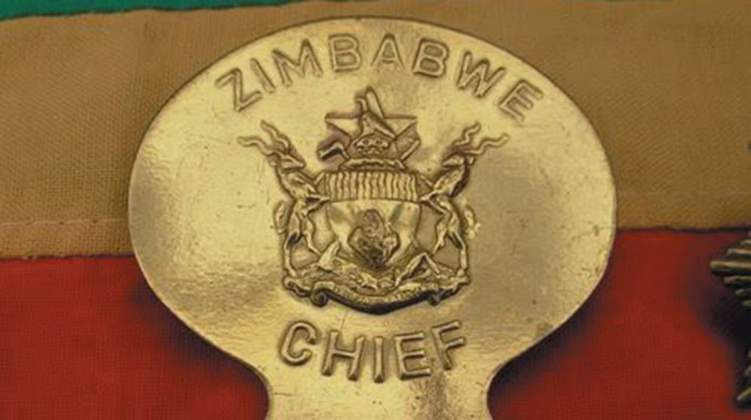
PRESIDENT Emmerson Mnangagwa yesterday announced a $18 billion economic stimulus package to respond to COVID-19, as he extended the lockdown by a further two weeks.
newZWire
The package is 9% of gross domestic product and 28,6% of the 2020 national budget. At Friday’s black market forex rate, the package works out to US$360 million.
“The package is proportionate to the disruption the virus has caused to the national economy,” Mnangagwa said in a televised speech yesterday.
Mnangagwa did not say how the package will be funded, saying Zimbabwe had to look to internal resources and bilateral foreign support as it has been shunned by international lenders.
“While most counties will be able to benefit from funding from IMF [International Monetary Fund], World Bank and AfDB [African Development Bank]. However, we remain grateful for bilateral support from China, UK, USA, UAE, India, the AU and the EU. We equally commend the business community, development partners and NGOs who are assisting the country,” he said.
According to Mnangagwa, the Z$18 billion package is “based on our aspiration to meet the diverse requirements of the national economy, and that includes capacitating SMEs [small and medium enterprises] and those in informal sector, who have borne the brunt of the lockdown.”
On the lockdown The lockdown continues for another two weeks, and the following conditions shall apply:
- Chamisa under fire over US$120K donation
- Mavhunga puts DeMbare into Chibuku quarterfinals
- Pension funds bet on Cabora Bassa oilfields
- Councils defy govt fire tender directive
Keep Reading
- Everyone must wear masks in public, include homemade ones
- Companies will reopen, but must provide rapid diagnostic tests for all staff , observe social distancing, sanitise workplaces, and ensure all workers wear masks
- Operating hours will be from 8am3pm Informal sector remains closed, except for food markets
- Only public buses allowed, and kombis and smaller taxis remain banned. Bus operators must disinfect their buses twice daily, ensure that commuters weak masks, have their temperature taken and their hands sanitised before boarding. Social distancing must be maintained within buses.
- Companies and buses must only reopen after fulfilling these requirements
- Health inspection teams will randomly check for compliance
- Churches, gyms, bars and other recreational activities remain closed.
On testing Mnangagwa says Zimbabwe needs to step up its testing, and that extending the lockdown was informed by trends in infection rates, and the country’s unique situation.
“We must remain cautious, for as long as the infection curve has not converged with our health delivery readiness curve,” Mnangagwa said.
Returning residents and international travellers will be quarantine for 21 days, with full testing on Day 1, on Day 8, and at Day 21.
Recently, government had announced that it would release returnees from mandatory quarantine to selfquarantine after a polymerase chain reaction test on Day 8.
New labs have been identi ed to increase testing, so as to inform transmission patterns and response strategies.
ED’s $18 billion package
- is is a summary of the economic package that Mnangagwa has announced.
- Healthcare workers, such as doctors and nurses, will not pay income tax for at least six months
- From the package, $500m has been set aside for SMEs. “The lack of incomefor small businesses has resulted in an increased number of vulnerable households. This situation has been worsened by the drought, which has led to food deficits that need imports to bridge the gap,” Mnangagwa said.
- A $2,4bn food grant programme for the rest of 2020. “ This window is earmarked to protect the vulnerable members of society, while additional resources are allocated for welfare, especially pensioners.”
- $500m set aside for the tourism and hospitality sector, one of the hardest hit sectors.
- On mining, a $1 billion credit support facility, designed to support large and small scale miners as well as speed up the completion of the mining cadastre system (this is an electronic record of who owns which claims in mining, meant to increase transparency)
- $3 billion for manufacturing sector to cover capex and operational expenditure
- $6,1 billion for agriculture to boost food production.
An additional $1 billion to the Health budget to support hospitals and other healthcare facilities, increase personal protective equipment for medical sta , and to buy drugs and additional test kits
How will these funds be accessed? Mnangagwa said this money will be accessed through normal banking channels. They will be offered on concessionary terms, at interest rates of 10% per annum.
There is a grace period of six months and a repayment period of 1-4 years, depending on nature of business.
On the Arts sector, Mnangagwa said: “You’ll recall I held an indaba in Bulawayo with the creative and arts industry. This industry thrives on crowds, but the lockdown has denied them of their vital lifeline. I have instructed Youth, Sports and Arts minister Kirsty Coventry to make a proposal on how best the arts can be helped to respond to COVID-19.”
On schools Mnangagwa said consultations are ongoing with parents and teachers.
However, he said, it is clear that Zimbabwe is not yet in a position to reopen schools and colleges. A number of conditions first must be met to guarantee the health and safety of students and teachers, he added.
In the meantime, online classes will be used, while exam classes will have priority on the reopening strategy. For now, schools remain closed.
Mnangagwa said: “We’re optimistic that this package will relaunch the Zim economy on a strong trajectory, characterised by higher productivity and supportive of job retention and creation. I appeal to all to appreciate that the impact of COVID-19 presents a continuously evolving situation that requires extreme caution on the part of government in order to protection everyone.
We would rather err on the side of caution, than on the side of recklessness.
“We are all individually and collectively responsible for the implementation of these measures. Let us all play our part.”












